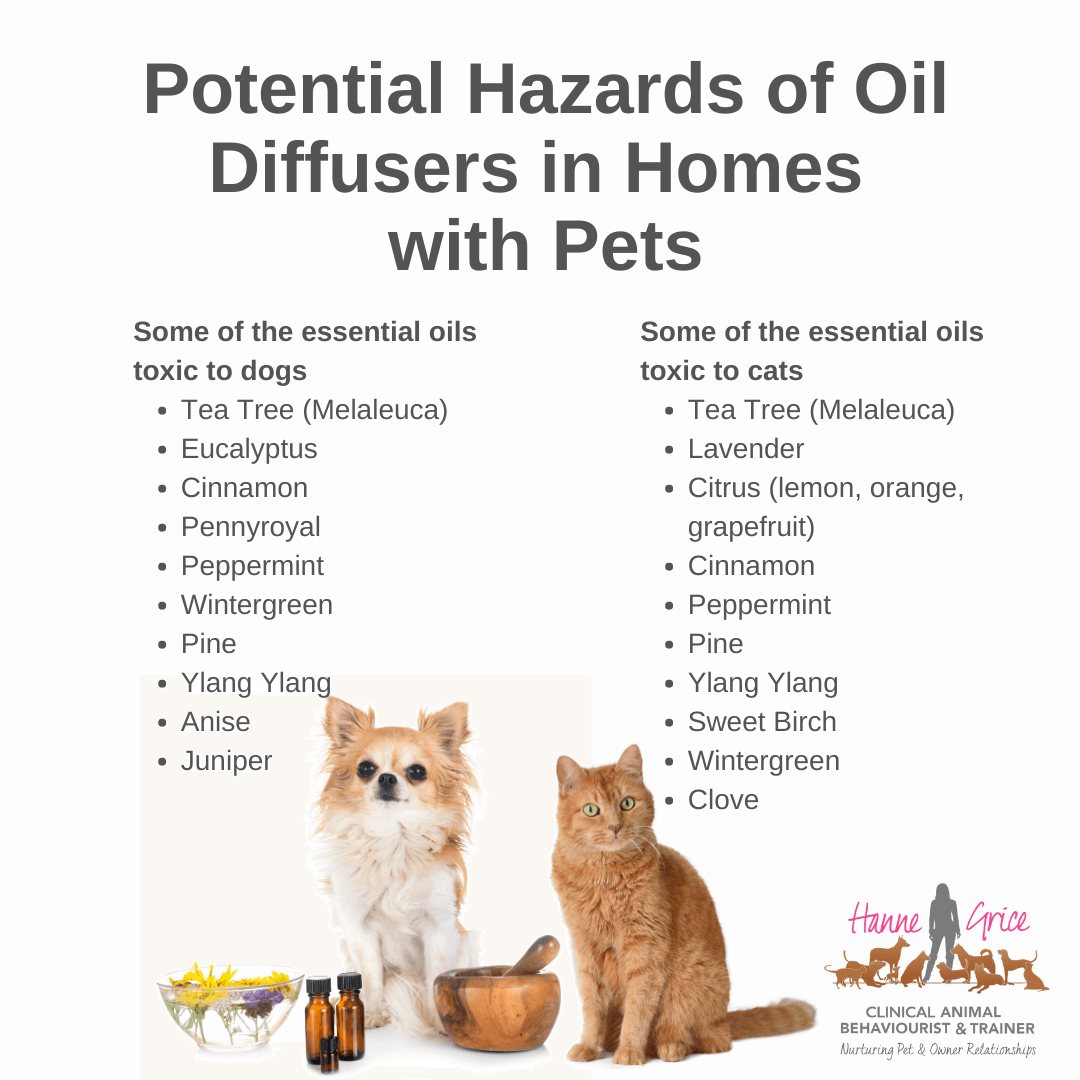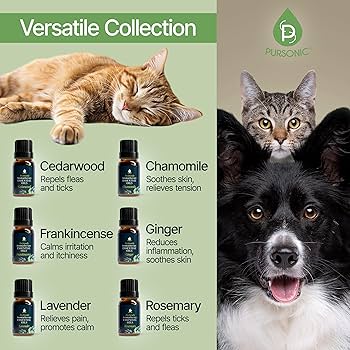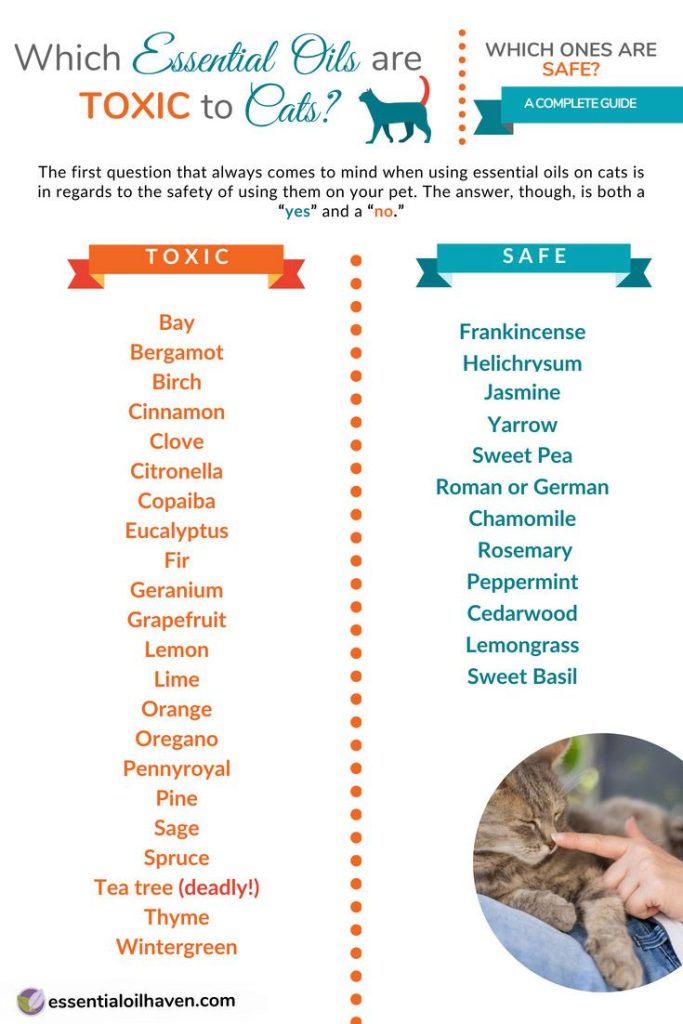Are you a proud cat owner who loves using essential oils for relaxation and wellness? You might be wondering if these fragrant oils are safe for your feline friend.
The truth is, not all essential oils are cat-friendly, and some can even pose serious risks to your pet’s health. But don’t worry—this article will guide you through the maze of information to ensure your cat stays safe while you enjoy the benefits of essential oils.
We’ll explore which oils are safe, which ones to avoid, and how you can use them responsibly. So, if you care about your cat’s well-being as much as your own, read on to discover how to keep your furry companion safe and happy.
Essential Oils And Cats
Essential oils have become popular in many homes. Their pleasant scents and soothing properties attract many people. But for cat owners, caution is key. Cats have unique biology. They process substances differently from humans and dogs. This means some essential oils can be harmful. Understanding which oils are safe is crucial. Let’s explore how essential oils affect our feline friends.
Common Uses Of Essential Oils
People use essential oils for various reasons. They help in reducing stress. Their calming scents make homes smell fresh. Some use them to improve sleep. Others find them useful for skin care. Oils like lavender and tea tree are common choices. Yet, what benefits humans might harm cats. Always be mindful of their uses around pets.
Potential Risks For Cats
Cats are sensitive to certain oils. Their livers cannot process some compounds. This can lead to toxic buildup. Symptoms include drooling, vomiting, and difficulty breathing. Oils like eucalyptus and citrus are particularly dangerous. Even small amounts can be harmful. It’s vital to ensure your cat’s safety. Always research before using oils at home.

Credit: www.cbc.ca
Toxic Essential Oils
Essential oils have become popular for their aromatic benefits and therapeutic properties. However, not all essential oils are safe for our feline friends. Cats have a unique metabolism that makes them sensitive to certain compounds found in essential oils, posing risks to their health. Understanding which oils are toxic can help you protect your pet from potential harm.
Oils To Avoid
Some essential oils are particularly dangerous to cats. Tea tree oil, commonly used for its antiseptic properties, is highly toxic to cats. Similarly, oils like eucalyptus, lavender, and citrus can pose serious risks. These oils contain compounds that cats cannot metabolize effectively, leading to a buildup of toxins in their systems. Even a small exposure can be harmful.
If you’re using essential oils at home, it’s crucial to keep them out of reach of your cat. This means avoiding diffusing these oils in rooms where your cat spends time. You might love the smell, but your cat’s health should come first.
Symptoms Of Toxicity
Recognizing the symptoms of essential oil toxicity can be life-saving. Common signs include drooling, vomiting, and breathing difficulties. You might notice your cat acting lethargic or disoriented. In severe cases, essential oil poisoning can lead to seizures. If you suspect your cat has been exposed, immediate veterinary attention is crucial.
Have you ever seen your cat react strangely after using essential oils at home? It’s a scary experience. Monitoring your cat’s behavior can provide early clues of exposure. Always err on the side of caution and consult with a vet if you’re unsure.
Your cat’s safety is a priority. Understanding the risks associated with essential oils can prevent accidents. Are there safer alternatives you could use instead? Essential oils offer benefits, but ensuring your pet’s well-being is essential.
Safe Essential Oils
Some essential oils can be harmful to cats. Lavender and chamomile are generally considered safe. Always dilute oils before use.
When it comes to caring for your feline friends, ensuring their safety around essential oils is crucial. While many oils can be harmful to cats, some are considered safe when used correctly. Understanding which oils are safe and how to use them can be a game-changer for cat owners. But can you imagine the peace of mind knowing your home smells delightful without putting your furry companion at risk?
Oils Considered Safe
Certain essential oils are generally safe for cats when used in moderation. Lavender oil is one of the most commonly accepted oils, known for its calming properties. Chamomile oil is another option, often used to soothe anxiety and promote relaxation. Frankincense oil can also be safely used, offering a range of benefits from reducing stress to supporting immune health. Remember, each cat is unique, and it’s essential to monitor your pet’s reaction to any new oil.
Proper Usage Guidelines
Even safe oils require careful handling. Always dilute essential oils before using them around your cat. A few drops in a diffuser are usually sufficient. Ensure the room is well-ventilated, allowing your cat to leave if they choose. Never apply oils directly to your cat’s fur or skin. Have you ever used oils and noticed your cat leaving the room? This could be their way of telling you it’s too much. Consider using pet-safe diffusers designed to emit minimal amounts of oil. Keeping the diffuser out of your cat’s reach is essential to avoid any accidental spills. If you notice any changes in your cat’s behavior, like lethargy or drooling, stop using the oils immediately and consult a veterinarian. Would you put your health at risk knowingly? The same care should apply to your pets. Incorporating essential oils into your home can be delightful and beneficial, but always prioritize your cat’s safety. Which safe oil will you try first, and how will you ensure your cat feels comfortable with it?
Alternatives To Essential Oils
Many cat owners love essential oils for their calming effects. But these oils can be harmful to cats. Cats lack certain liver enzymes, making it hard to break down oils. So, it’s vital to find safer alternatives. Natural remedies and safe aromatherapy options can help.
Natural Remedies For Cats
Herbs are gentle and safe for cats. Catnip can uplift a cat’s mood without risk. Chamomile is soothing for cats, helping them relax. Valerian root can also calm anxious cats. These herbs offer a safe way to support your cat’s wellbeing.
Safe Aromatherapy Options
Consider using diffusers that do not need oils. Water-based diffusers can be a good choice. They can humidify the air without adding scents. Some diffusers allow safe herbal infusions. This provides a gentle aroma without harming your cat.
Another option is using unscented candles. These can create a peaceful environment without strong smells. Make sure to keep candles out of reach. Cats can be curious, and safety is key. Always choose options that benefit your pet’s health.
Consulting A Veterinarian
Essential oils are popular for their aromatic benefits. Cat owners often wonder about their safety around pets. Consulting a veterinarian is crucial for understanding the effects on cats. Veterinarians offer expert advice tailored to your feline’s health.
Importance Of Professional Advice
Veterinarians have extensive knowledge about animal health. They understand how essential oils may affect cats. Some oils can be toxic to felines. Professional advice helps prevent accidental harm. Always discuss your concerns with a trusted vet. They can recommend safe options.
A vet can identify any allergies or sensitivities. Cats have unique biological systems. What is safe for humans might not be safe for them. Expert guidance is essential for protecting your pet’s well-being.
Steps For Safe Introduction
Introducing essential oils to cats requires caution. Start with a small amount. Observe your cat’s behavior closely. Any signs of distress mean the oil is not suitable. Keep oils in a secure location. Cats are curious and may try to explore.
Use a diffuser in a well-ventilated area. Ensure your cat can leave the room if needed. Gradually increase exposure time. Monitor your cat’s health and comfort regularly. Always consult a veterinarian for personalized advice.

Credit: www.hannegrice.com

Credit: www.amazon.com
Frequently Asked Questions
Are Essential Oils Harmful To Cats?
Essential oils can be harmful to cats. Cats lack certain enzymes to metabolize these oils, leading to toxicity. Common symptoms include drooling, vomiting, and difficulty breathing. Always consult a veterinarian before using any essential oils around cats to ensure their safety.
Which Essential Oils Are Safe For Cats?
Few essential oils are considered safe for cats, like lavender and chamomile. However, caution is still advised. Always use diluted forms and monitor your cat for any adverse reactions. Consulting a veterinarian for guidance is recommended to ensure your cat’s safety.
Can Diffusers Harm My Cat?
Diffusers can potentially harm cats if essential oils are used improperly. Cats may inhale concentrated oils, leading to respiratory issues. Always ensure proper ventilation and use cat-safe oils. Regularly monitoring your cat’s health and behavior is crucial when using diffusers at home.
How Can I Safely Use Essential Oils Near Cats?
To safely use essential oils near cats, choose oils known to be safe, like lavender. Always dilute them properly and limit their exposure. Avoid direct contact with your cat’s skin or fur. Consulting a veterinarian for advice on safe usage is highly recommended.
Conclusion
Exploring essential oils for cats requires care and caution. Not all oils are safe. Lavender and chamomile are generally safer options. Always consult your vet before using oils on pets. Cats have unique sensitivities. Even small amounts can harm them.
Ensure oils are out of reach. Never apply directly on their fur. Use a diffuser cautiously, and in well-ventilated areas. Monitor your cat for any unusual behavior. Prioritize their health and safety. Make informed choices for your feline friend.
